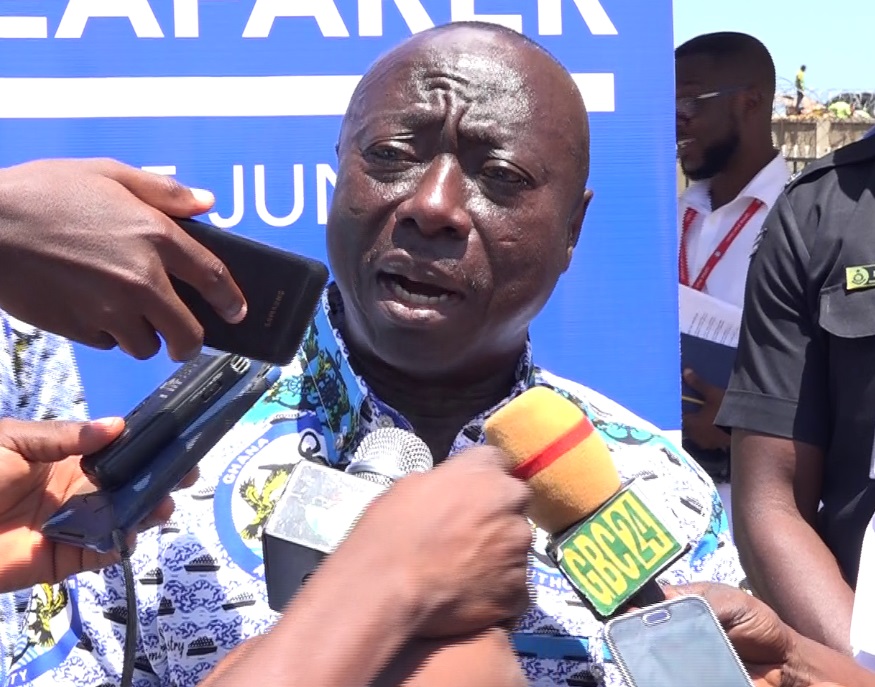Remove Kwame Owusu as GRA Board Chair – GII to Akufo-Addo
The Ghana Integrity Initiative (GII) says that if President Nana Addo Dankwa Akufo-Addo insists on maintaining Kwame Owusu as the Board Chairman of the Ghana Revenue Authority (GRA), then he should publish the report of investigations that contradict the allegation of conflict of interest and financial misappropriation made against him.
To the GII, if President Akufo-Addo does not intend to publish the report, he should then revoke the appointment of Mr Owusu.
It said failure by the President to revoke Mr. Owusu’s appointment or publish the report that clears him, will only contribute to negating all the efforts of the GRA to promote voluntary compliance of Ghana’s tax laws and hence leaving the country to mark time at Tax to GDP ratio of 12.6 percent (Ministry of Finance 2018 fiscal data Jan – Dec.)
In a press statement issued on Monday, July 15, 2019, the GII said the public outcry following Mr Owusu’s appointment as GRA Board Chairman was as a result of a pending case of investigations into allegations of abuse of office and conflict of interest whilst he was Managing Director of the Ghana Maritime Authority (GMA).
The GII reminded President Akufo-Addo of sections of his oath of office and said the President swore to hold “himself and appointees accountable to the people of Ghana and making information on his accountability available to the people whose mandate he holds to govern.”
Below is a copy of the GII’s Press Release:
GIl DEMANDS REMOVAL OF NEW GRA BOARD CHAIR UNTIL CLEARED OF ALLEGATIONS OF IMPROPRIETY
GII is calling on the President, to revoke the appointment of Mr. Kwame Owusu following the intense public outcry, in the pending investigations into allegations of abuse of office and conflict of interest involving Mr. Owusu.
The appointment of the former Managing Director of the Ghana Maritime Authority, Mr Owusu as the Chairman of the Board of Directors of the Ghana Revenue Authority has evoked disappointment among the general public particularly because of the events preceding his exit from his previous job.
The raging debate is focused on the integrity of Mr. Owusu and its implication to the public perception of the new institution he has been appointed to.
It is important to remind the President of this sections of his oath of office – “… and that I dedicate myself to the service and well-being of the people of the Republic of Ghana and to do right to all manner of persons”.
The said service which the President swore to all Ghanaians includes holding himself and appointees accountable to the people of Ghana and making information on his accountability available to the people whose mandate he holds to govern.
Also, the President should be guided by Ghana’s commitment to the Open Governance Partnership (OGP) which the Government of Ghana signed onto in 2011.
The OGP commitment revolves around the pillars of transparency, empowering citizens to participate and harness new technologies to promote good governance.
Therefore, publishing reports of the investigation into the conduct of public officers is an evidence of good and open governance practice which would be consistent with their oath of office.
Efforts by governments over the years at widening the tax net has been fraught with many challenges.
Anecdotal evidence suggests that in addition to the myriad of problems faced by Ghana Revenue Authority (GRA), trust in government to use the tax revenue prudently for the benefit of the taxpayer sinks with every corruption exposed in the public sector.
In line with the above, Gil holds the view that, it is out of place to appoint an individual whose integrity has been questioned to the Board of such a sensitive entity as GRA.
However, if the President wants to stand by his decision, then Gll calls on him to publish the report of investigations that contradict the allegation of conflict of interest and financial misappropriation made against his appointee.
Failure by the President to revoke Mr. Kwame Owusu’s appointment or publish the report that clears him will only contribute to negating all the efforts of GRA to promote voluntary compliance of the country’s tax laws and hence leaving the country to mark time at Tax to GDP ratio of 12.6 percent (Ministry of Finance 2018 fiscal data Jan – Dec.)



